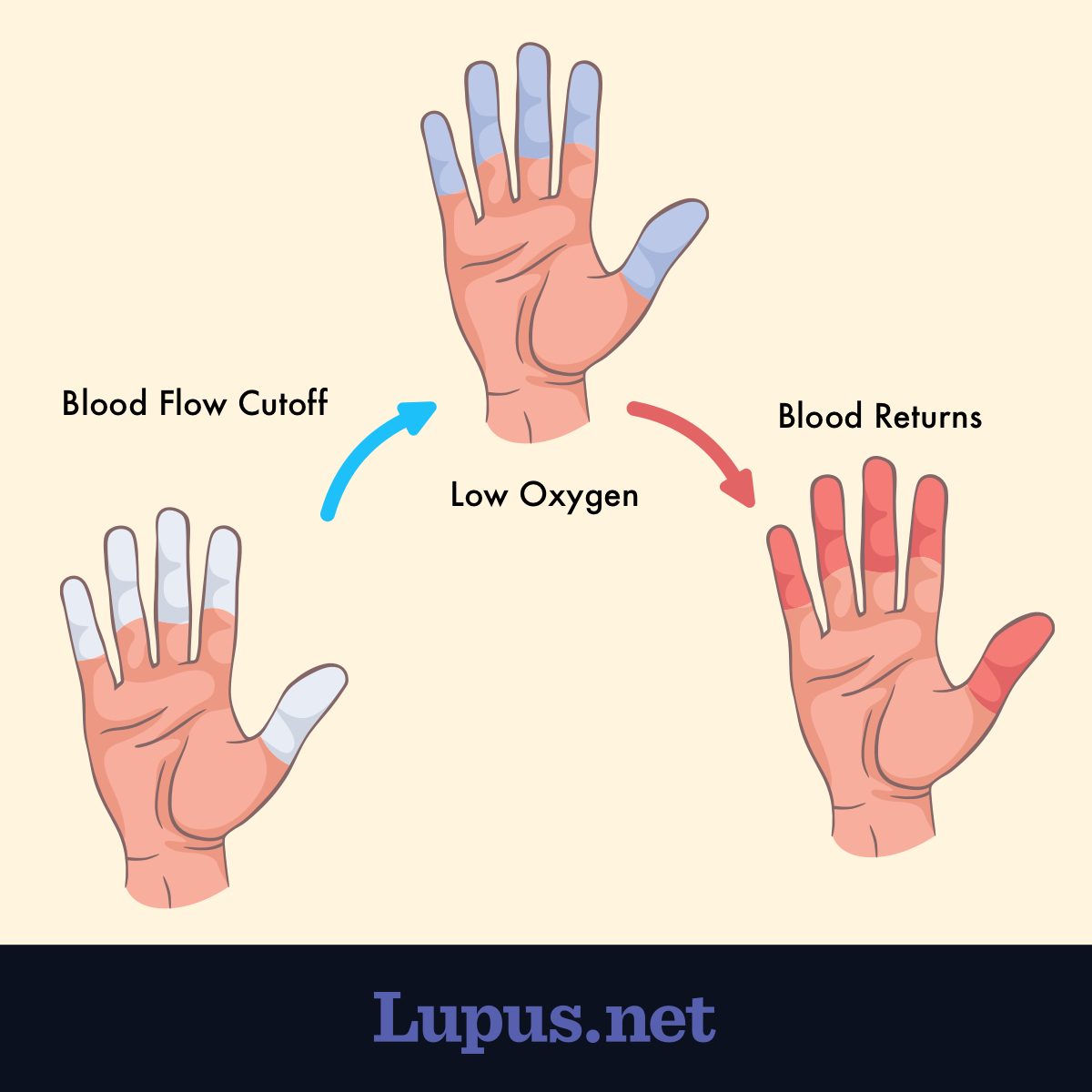Raynaud's Syndrome
Reviewed by: HU Medical Review Board | Last reviewed: January 2020
Raynaud’s disease is a condition in which the tips of the fingers or toes turn white, blue, red, or purple when exposed to cold temperatures. Pain, numbness, and tingling may also be present. Up to one-third of people with lupus experience Raynaud’s disease.1-2
Raynaud’s disease is also called Raynaud’s phenomenon or syndrome. It is usually mild, but in rare cases, serious complications such as ulcers, gangrene, and amputations may occur.
What causes Raynaud’s?
Lupus-related Raynaud’s occurs when the blood vessels contract and limit blood flow. Doctors believe it is caused by inflammation of the nerves or blood vessels. It most often appears in the fingers and toes but may also emerge on the ears, lips, nose, knees, or chin. Raynaud’s can be triggered by cold temperatures, stress, decongestants, or using hand tools.1-2
Figure 1. An infographic illustration of the cycle of Raynaud's syndrome, including blood flow cutoff, low oxygen, and blood flow returning to a hand.
How is Raynaud’s phenomenon treated?
Lupus-related Raynaud’s can be treated with certain medications such as calcium channel blockers, PDE type 5 inhibitors, nitrates or surgical procedures.1-2
You may be able to avoid the symptoms with lifestyle changes:1-2
- Soak your hands in warm water as quickly as possible.
- If you know you are going to be somewhere cold, dress in layers and wear a hat, mittens and warm socks. Mittens keep the hands warmer than gloves.
- Avoid sudden changes in temperature, such as moving quickly between the hot outdoors into an air-conditioned room.
- Protect your hands when taking things out of the freezer.
- Avoid decongestants as much as possible.
- Avoid smoking or being around second-hand smoke.
- Avoid using tools that vibrate in your hands, such as electric mixers or power tools.
- Practice good stress management.
